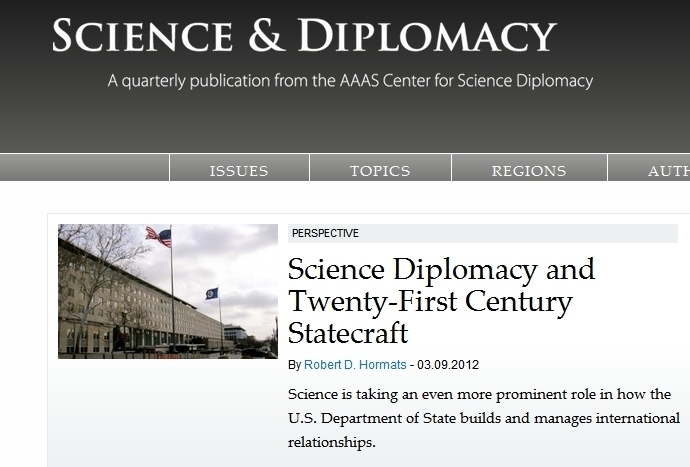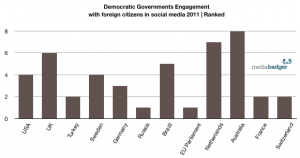Cell Phones Nearly Ubiquitous in Many Countries
Survey Report
 In a remarkably short period of time, internet and mobile technology have become a part of everyday life for some in the emerging and developing world. Cell phones, in particular, are almost omnipresent in many nations. The internet has also made tremendous inroads, although most people in the 24 nations surveyed are still offline.
In a remarkably short period of time, internet and mobile technology have become a part of everyday life for some in the emerging and developing world. Cell phones, in particular, are almost omnipresent in many nations. The internet has also made tremendous inroads, although most people in the 24 nations surveyed are still offline.
Meanwhile, smartphones are still relatively rare, although significant minorities own these devices in countries such as Lebanon, Chile, Jordan and China.
People around the world are using their cell phones for a variety of purposes, especially for texting and taking pictures, while smaller numbers also use their phones to get political, consumer and health information. Mobile technology is also changing economic life in parts of Africa, where many are using cell phones to make or receive payments.
 While the internet still has a limited reach in the emerging and developing world, once people do gain access to the internet, they quickly begin to integrate it into their lives. A significant number of people in these nations say they use the internet on a daily basis, including roughly half of those polled in Lebanon, Russia and Argentina. At least 20% use the internet daily in 15 of the 24 nations surveyed.
While the internet still has a limited reach in the emerging and developing world, once people do gain access to the internet, they quickly begin to integrate it into their lives. A significant number of people in these nations say they use the internet on a daily basis, including roughly half of those polled in Lebanon, Russia and Argentina. At least 20% use the internet daily in 15 of the 24 nations surveyed.
In 21 of 24 nations, a majority of internet users also participate in sites like Facebook and Twitter (see here for a country by country list of social networking sites).
People are using social networking sites to stay in touch with family and friends and to share their views on an array of topics, including popular culture, religion and politics.
These are among the main findings of a Pew Research Center survey conducted among 24,263 people in 24 emerging and developing economies from March 2, 2013 to May 1, 2013. All interviews were conducted face-to-face.
The survey also finds that using the internet – like many other forms of communication technology – is significantly more common among young people (see here for data on age differences for several key technology usage questions). In 14 of 24 nations, at least half of 18-29 year-olds say they are online. Internet use is also correlated with national income, as richer nations tend to have a higher percentage of internet users.
Similarly, smartphone ownership is more common in countries with higher levels of per capita income. Traditional cell phones still outnumber smartphones, although roughly three-in-ten or more Lebanese, Chileans, Jordanians, Chinese, Argentines, South Africans, Malaysians and Venezuelans now own a smartphone.
People use their cell phones for many things, but texting is especially popular. In 22 of 24 countries, most cell phone owners send text messages. Mobile phones are also widely used for taking pictures or video – at least half of cell phone owners use their devices for this in 15 nations.
 While making or receiving payments is one of the least common cell phone activities, it is much more common in the region where mobile money is a phenomenon – Africa, and more specifically, Kenya and its neighbor Uganda. Nearly seven-in-ten Kenyans (68%) who own a cell phone say they regularly use their mobile device to make or receive payments. Half in Uganda say this as well. Meanwhile, even though only 29% of mobile owners in South Africa and 24% in Senegal say they use their phones for monetary transactions, these are still among the highest percentages across all the countries surveyed. Only in Russia (24%) do as many cell owners use their device for such purposes. In the 18 countries surveyed outside of sub-Saharan Africa, a median of only 8% use their cell phones for making and receiving payments.
While making or receiving payments is one of the least common cell phone activities, it is much more common in the region where mobile money is a phenomenon – Africa, and more specifically, Kenya and its neighbor Uganda. Nearly seven-in-ten Kenyans (68%) who own a cell phone say they regularly use their mobile device to make or receive payments. Half in Uganda say this as well. Meanwhile, even though only 29% of mobile owners in South Africa and 24% in Senegal say they use their phones for monetary transactions, these are still among the highest percentages across all the countries surveyed. Only in Russia (24%) do as many cell owners use their device for such purposes. In the 18 countries surveyed outside of sub-Saharan Africa, a median of only 8% use their cell phones for making and receiving payments.
Cell Phone and Smartphone Ownership
More than half of the population in each of the nations surveyed say they own a cell phone. Roughly nine-in-ten or more own mobile phones in Jordan (95%), China (95%), Russia (94%), Chile (91%) and South Africa (91%).
Cell phone ownership rates have skyrocketed in the last decade in most of the nations where data on trends is available. The pervasiveness of cell phone ownership in these nations is in part due to a lack of landline connections. Across the 24 countries, a median of only 23% say they have a working landline telephone in their house, including as few as 1% in Ghana and Kenya. Instead, many emerging and developing nations have skipped landlines and moved straight to mobile technology.
Smartphone ownership pales by contrast – there is no country in the study where even half of the population owns a smartphone. Still, this relatively new technology is gaining a foothold in many emerging and developing nations. At least 20% have a smartphone in 11 countries.
In every country polled, there is a significant age gap on smartphone ownership, with people under age 30 much more likely than others to own an iPhone, BlackBerry, or Android device. For instance, 69% of 18- 29 year-olds in China have a smartphone, as do half or more in Lebanon (62%), Chile (55%), Jordan (53%) and Argentina (50%).
Education is also associated with smartphone ownership. In 10 nations, those with a college degree are significantly more likely to own a smartphone than are those who have not graduated from college. This is especially true in the Middle East – in Egypt, for example, 72% of college graduates have a smartphone, compared with only 13% of Egyptians without a college degree. A huge gap is also found in China, where 83% of college graduates say they own a smartphone, while just 37% of those without a college degree say the same.
Texting Most Popular Use of Cell Phones
Cell phone owners describe a wide variety of uses for their devices. Large majorities in most countries say that they regularly send text messages. Overall, a median of 78% of mobile phone users across the 24 countries send texts, making it the most popular cell phone activity (other than making calls) included on the survey.
 Taking pictures and video is also a popular activity among cell phone owners, with a median of 54% saying they do this regularly. Compared with text messaging, though, there are a wider variety of responses to this question across the countries. Cell phone owners in Latin America generally are more likely than those in other countries to use mobile phones for this purpose. For instance, two-thirds or more of cell phone owners in Venezuela (77%) and Chile (67%) say they regularly snap pictures or shoot video with their phones. But less than four-in-ten mobile owners in Tunisia (36%), Lebanon (35%), Uganda (27%) and Pakistan (19%) say the same.
Taking pictures and video is also a popular activity among cell phone owners, with a median of 54% saying they do this regularly. Compared with text messaging, though, there are a wider variety of responses to this question across the countries. Cell phone owners in Latin America generally are more likely than those in other countries to use mobile phones for this purpose. For instance, two-thirds or more of cell phone owners in Venezuela (77%) and Chile (67%) say they regularly snap pictures or shoot video with their phones. But less than four-in-ten mobile owners in Tunisia (36%), Lebanon (35%), Uganda (27%) and Pakistan (19%) say the same.
A median of only one-in-four cell phone users across the countries surveyed say they access a social networking site regularly on their phone, although a third or more do so in Chile (37%), Venezuela (37%), Lebanon (36%) and Nigeria (34%). This is less popular elsewhere, with as little as 3% in Pakistan and 10% of cell phone owners in Uganda saying they regularly use social networking sites (SNS) on their mobile device such as Facebook, Twitter, and other country-specific examples (see here for full list). Generally, this activity is more popular in Latin America and the Middle East than in Asia and Africa.
Other activities that are less popular across regions include getting political news and information (a median of 16%), getting consumer information such as the prices and availability of products (16%), getting information about health and medicine (15%) and making or receiving payments (11%).
However, there are certain countries and regions where using cell phones to get political and other information is more widespread. For instance, getting political news and information is relatively popular among cell phone owners in Venezuela (39%) and China (31%).
Getting consumer information, such as prices or availability of products, is not a very common activity among cell phone owners in any of the countries surveyed. Still, a quarter or more in Venezuela (29%), Russia (28%) and Chile (25%) say they do this regularly. Similar numbers of mobile users in Venezuela (30%) and Nigeria (28%) say they get information about health and medicine for themselves or their family.
Making or receiving payments is one of the least-used cell phone activities among the countries surveyed, but it is much more common in Africa, especially Kenya (68% of cell phone owners) and Uganda (50%). In the 18 countries surveyed outside of sub-Saharan Africa, a median of only 8% say they use their cell phones for making and receiving payments.
Internet Usage and Social Networking
 Across the 24 emerging and developing nations surveyed, the percentage of people who are online varies widely. In six nations, half or more use the internet, at least occasionally. In contrast, 25% or less go online in Indonesia (23%), Uganda (12%) and Pakistan (8%).
Across the 24 emerging and developing nations surveyed, the percentage of people who are online varies widely. In six nations, half or more use the internet, at least occasionally. In contrast, 25% or less go online in Indonesia (23%), Uganda (12%) and Pakistan (8%).
People who do go online tend to become avid users. Half or more of internet users in most of the countries surveyed say they use it daily.
Consistently, internet usage rates are higher among young people. In every nation surveyed, there are double digit age gaps between adults under age 30 and those 50 and older. And in 19 countries, the gap is more than 30 percentage points.
Internet usage is also strongly correlated with income. Generally, the higher a country’s GDP per capita, the higher its percentage of internet users. The three nations with the highest per capita incomes in this survey – Chile, Argentina and Russia – also have the highest internet usage rates. Meanwhile, these rates are especially low in two of the poorest countries surveyed, Pakistan and Uganda, where roughly nine-in-ten never go online. Some nations, such as Kenya, Jordan, Egypt and Bolivia have more people online than might be anticipated, given their per capita income.

Once people have access to the internet, they tend to engage in social networking. The most popular way in which people use social networking is staying in touch with family and friends. A near-universal median of 96% among social networking users across the 22 countries analyzed say they use SNS for this purpose (Pakistan and Uganda are excluded due to insufficient sample size). Sharing views about pop culture is also common, with a median of 73% saying they use social networks to post opinions on music and movies.

 Across 22 countries, a median of 38% among social networkers say they share views about politics using social media sites. While not as popular as staying in touch with friends or sharing music and movies, political discourse online is particularly popular in the Middle East and sub-Saharan Africa. In Lebanon, 72% of social networkers say they share views about politics. Six-in-ten or more in Egypt (64%), Jordan (63%) and Tunisia (60%) say they talk about politics on social networks. This activity is also popular in Kenya (68%) and Nigeria (62%).
Across 22 countries, a median of 38% among social networkers say they share views about politics using social media sites. While not as popular as staying in touch with friends or sharing music and movies, political discourse online is particularly popular in the Middle East and sub-Saharan Africa. In Lebanon, 72% of social networkers say they share views about politics. Six-in-ten or more in Egypt (64%), Jordan (63%) and Tunisia (60%) say they talk about politics on social networks. This activity is also popular in Kenya (68%) and Nigeria (62%).
Religion, like politics, is not at the top of the list of topics for social network users in emerging and developing nations. A median of 43% say they share views about religion on websites like Facebook and Twitter. But again, this activity is more popular in the Middle East and sub-Saharan Africa. Six-in-ten or more social networkers in Nigeria (69%), Jordan (64%), Egypt (60%), and Kenya (60%) share views about religion online. Elsewhere in Asia and Latin America, the practice is less common.
For many in emerging and developing nations, online political dialogue leads to discoveries about the political leanings of people they know. In nine countries, half or more of social networkers say they have learned that someone’s political beliefs were different than they thought, based on something that person posted on a site like Facebook or Twitter. This type of discovery is particularly common in sub-Saharan Africa and Latin America. It happens less often in Egypt, China, Jordan and Turkey.
http://www.pewglobal.org/files/2014/02/Pew-Research-Center-Global-Attitudes-Project-Technology-Report-FINAL-February-13-20146.pdf





 In a remarkably short period of time, internet and mobile technology have become a part of everyday life for some in the emerging and developing world. Cell phones, in particular, are almost omnipresent in many nations. The internet has also made tremendous inroads, although most people in the 24 nations surveyed are still offline.
In a remarkably short period of time, internet and mobile technology have become a part of everyday life for some in the emerging and developing world. Cell phones, in particular, are almost omnipresent in many nations. The internet has also made tremendous inroads, although most people in the 24 nations surveyed are still offline. While the internet still has a limited reach in the emerging and developing world, once people do gain access to the internet, they quickly begin to integrate it into their lives. A significant number of people in these nations say they use the internet on a daily basis, including roughly half of those polled in Lebanon, Russia and Argentina. At least 20% use the internet daily in 15 of the 24 nations surveyed.
While the internet still has a limited reach in the emerging and developing world, once people do gain access to the internet, they quickly begin to integrate it into their lives. A significant number of people in these nations say they use the internet on a daily basis, including roughly half of those polled in Lebanon, Russia and Argentina. At least 20% use the internet daily in 15 of the 24 nations surveyed. While making or receiving payments is one of the least common cell phone activities, it is much more common in the region where mobile money
While making or receiving payments is one of the least common cell phone activities, it is much more common in the region where mobile money  Taking pictures and video is also a popular activity among cell phone owners, with a median of 54% saying they do this regularly. Compared with text messaging, though, there are a wider variety of responses to this question across the countries. Cell phone owners in Latin America generally are more likely than those in other countries to use mobile phones for this purpose. For instance, two-thirds or more of cell phone owners in Venezuela (77%) and Chile (67%) say they regularly snap pictures or shoot video with their phones. But less than four-in-ten mobile owners in Tunisia (36%), Lebanon (35%), Uganda (27%) and Pakistan (19%) say the same.
Taking pictures and video is also a popular activity among cell phone owners, with a median of 54% saying they do this regularly. Compared with text messaging, though, there are a wider variety of responses to this question across the countries. Cell phone owners in Latin America generally are more likely than those in other countries to use mobile phones for this purpose. For instance, two-thirds or more of cell phone owners in Venezuela (77%) and Chile (67%) say they regularly snap pictures or shoot video with their phones. But less than four-in-ten mobile owners in Tunisia (36%), Lebanon (35%), Uganda (27%) and Pakistan (19%) say the same. Across the 24 emerging and developing nations surveyed, the percentage of people who are online varies widely. In six nations, half or more use the internet, at least occasionally. In contrast, 25% or less go online in Indonesia (23%), Uganda (12%) and Pakistan (8%).
Across the 24 emerging and developing nations surveyed, the percentage of people who are online varies widely. In six nations, half or more use the internet, at least occasionally. In contrast, 25% or less go online in Indonesia (23%), Uganda (12%) and Pakistan (8%).

 Across 22 countries, a median of 38% among social networkers say they share views about politics using social media sites. While not as popular as staying in touch with friends or sharing music and movies, political discourse online is particularly popular in the Middle East and sub-Saharan Africa. In Lebanon, 72% of social networkers say they share views about politics. Six-in-ten or more in Egypt (64%), Jordan (63%) and Tunisia (60%) say they talk about politics on social networks. This activity is also popular in Kenya (68%) and Nigeria (62%).
Across 22 countries, a median of 38% among social networkers say they share views about politics using social media sites. While not as popular as staying in touch with friends or sharing music and movies, political discourse online is particularly popular in the Middle East and sub-Saharan Africa. In Lebanon, 72% of social networkers say they share views about politics. Six-in-ten or more in Egypt (64%), Jordan (63%) and Tunisia (60%) say they talk about politics on social networks. This activity is also popular in Kenya (68%) and Nigeria (62%).












